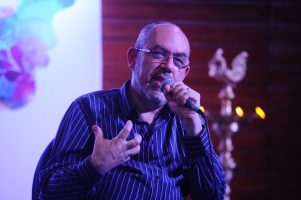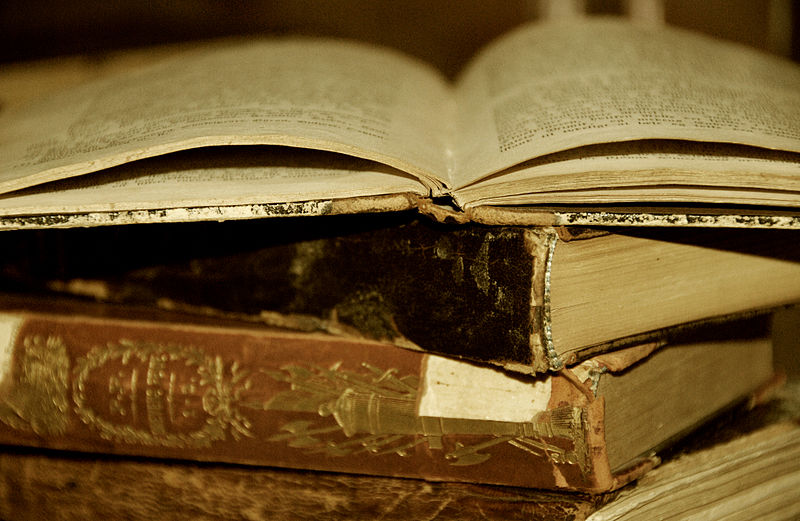Onset of a New Golden Age – Q&A with Pierre Poulain
Article By Manjula Nanavati
 At 61, Pierre Poulain exudes an integral energy. His stance is erect, as if poised for action, his eyes curious and attentive, and his speech swift and voluble.
At 61, Pierre Poulain exudes an integral energy. His stance is erect, as if poised for action, his eyes curious and attentive, and his speech swift and voluble.
He describes himself as a Philosopher – Photographer, combining these two apparently unrelated disciplines seamlessly. He founded New Acropolis in Israel in 1986, and has taught philosophy ever since. Today, as Regional Director he oversees New Acropolis work through the Asia-Africa-Oceania areas, while also finding the enthusiasm and passion to exhibit his photography work, and is invited to present lectures all over the world.
“Philosophy for me is what reveals the meaning of life,” he says, “and Photography allows me to approach and transmit this meaning through Beauty as an aspect of Truth.”
Over the last few years Pierre has added one more feather to his cap; that of writing. The Acropolitan Magazine met with this indefatigable, multi-talented, eloquent dynamo to discuss his newest book After the Fall, History Continues… which he describes as “a practical manual for the people of today living through these new Middle Ages.”
Here are excerpts from our conversation.
THE ACROPOLITAN (TA): Your book talks about a decline in civilization. If we were to imagine a new Golden Age, how would you envision this?
PIERRE POULAIN: All over the world, in spite of differing ideologies, religions, political systems and cultures, I think that the problem is the same. Today’s civilization is purely materialistic, driven by economic benefit, and indoctrinates people accordingly. What is lacking is the ability to give central importance to human development.
My dream is of a civilization in which human beings are the heart, not one in which human beings are exploited to serve specific personal interests. Therefore, we need a society that serves the real needs of the human being, the evolution of human consciousness. This does not exist today. But we do find examples of this vision in ancient esoteric traditions, both in the East and West.
It is this vision of a Golden Age, that we should do our best to recapture; we must do all that we can to transform our way of life so that we can come as close as possible to it. It may be strange for me to say this, but I must add that I don’t think we can accomplish this in totality, because perfection is always beyond the reach of Man. But we can do a lot to approach it, because the distance that exists between it and our present reality is so enormous, that I’m convinced that even just reducing this gap would be a large step in the right direction.
TA: This is a beautiful vision for our future. But what might we practically do today to accomplish this?
POULAIN: I think the answer lies firstly in philosophy, and then in the concrete, daily application of philosophy. What does philosophy really mean? When studying philosophy at university, one is taught about philosophers, their ideas, and the history of philosophy. But you do not really learn to be a philosopher. Even having a doctorate in philosophy doesn’t mean that the person acts and lives in accordance with his knowledge.
Philosophy is not the accumulation of knowledge. Philosophy is the love of wisdom. And wisdom is the real heart of life; to know how to live in the right way. It is not something that you can learn to do if you don’t have the need for it.
It is a need to follow your heart, your swadharma; to become what you really are meant to be, distinctive and individual. We have to encourage people to understand their own swadharma and to find the courage to embrace it. This does not really happen today because we live in a world that imposes uniformity.
For a Philosopher, it is not enough to survive through the rat race of life. He has a need to truly live. And this becomes a way of life.
TA: What can we do to guard against ‘cultivating the enslavement of our own ignorance’ as you describe in your book?
In his Allegory of the Cave, Plato speaks of the lords of the cave, and the chained prisoners, where the chains represent our attachments. But among these prisoners, are a few who extricate themselves from their bonds and dare to exit the cave, out towards the light of the sun, the source of life, consciousness. This is a metaphor of the philosophical process of inquiry. Thereafter, there are also those who return to the Cave, in order to transmit the newfound knowledge they gained outside. You could say that it was their swadharma to discover and communicate the Truth.
Life is evolution. Evolution is movement. And movement is transmission. Transmission is essential as it creates space, in which to receive more, another step forward in evolution.
TA: This process seems totally abstract. How then might we transmit this experience in a tangible way?
POULAIN: There are many ways in which to transmit this; among them are Politics and Art. However we must understand these terms correctly.
The Politician is the one that understands the meaning of life and his life’s quest is to organize society and culture in accordance with the laws of nature; based on the essential enduring reality, rather than temporary ideology. If you organize human civilization around something temporary then you perpetuate illusion, maya. True Politics is the governance of the polis (Greek: city) in an ethical and just manner.
We believe we are living in the midst of equality and democracy. But I think the real equality, the real justice, is the right that each individual has to really be who he/she really is; to allow and encourage each one to fulfill his/her own needs. The problem with the modern concept of democracy is that it has lost the concept of swadharma, resulting in the notion that everyone must be treated equally. While I do think we must equally provide everyone with the opportunity to fulfill their needs, I do not think everyone has the same needs. And it would be tyranny to force somebody to be something that he is not.
A pertinent example, is the problem of gender equality, and the women’s liberation movement. We cannot deny the existence of biological differences, emotional differences, differences in the way we deal with people, situations, etc. But this does not mean that one way is better than the other. It’s just a different perspective, another way to find solutions. Both are equally valid, and we need to respect both. Forcing a certain behavior on one gender would be disrespecting their natural identity.
The ideal society therefore would be one that allows each citizen an opportunity to nurture his/her individual abilities, and possibilities, rather than providing the exact same thing to everyone. So, this is the way of the politician.
But you also have the way of the Artist. And just as Politics encompasses justice, Art deals with beauty. Life, light, and wisdom are harmony, and harmony is beauty. Some people will instinctively react more to beauty than to justice. So to transmit philosophy through Beauty and Harmony is another way. This is the task of the Artist.
But just like politics cannot be about a personal ideology, art too cannot be personal. Both the Politician and the Artist, have to be transparent. They have to put aside their own subjectivity and become the vessel of this light, a vahan, of this universal understanding.
Whether through Politics or Art, you must transmit only what exists objectively. You must transmit what IS; not your emotion, nor your ideology. Because Politics is not about my opinion; its real function is to help us discover the truth of life. Art is not what I think of beauty; it is to help us discover the harmony and beauty of life.
Our world needs just a few philosophers that return to the cave as real Artists/Politicians – real leaders and real mystics – and it will be enough to begin to change the way our civilization is headed, and to bridge the distance between what we have today, and the reality of a Golden Age.
TA: Caught up between the challenges of survival and living what can the individual really do?
POULAIN: You cannot expect to be able to do more than you can. But you should not do less than you can. People spend a lifetime making money, and never reach the point where they think they have enough. We waste our time simply trying to survive.
Firstly, you need to understand that you are not who you think you are. You identify with your personality (from Greek persona: mask) so completely that you believe that you and your personality are one and the same. But it is only a mask; it is not you. And this mask has a multitude of needs and desires. Without awareness of another true and higher, internal identity, obviously you will spend all your time trying to serve the needs of the mask.
This is our paramount task: to be our true self. Because that is the only real way you can contribute to making a difference. In doing so, you become an example – one that people will look at and say, “It’s possible! There is somebody who is alive, evolving, with a sense of joy and purpose.” It doesn’t mean that such a person does not have difficulties. He/she too has to deal with the world: a job, a family, studies, taxes, etc. But he is not enslaved by these things. It doesn’t cause him to lose his center, his happiness, his consciousness. “Wow…I want to be like that!” And this is what each one of us can do. Everyone is important. Each one has his role to play to make a difference.
When I first found a person like that, it was a shock for me because, for the first time in front of me was somebody I intuitively knew was not talking about something he had read…but that he really knew, from his heart, from the way that he lived. It was no longer about words, it was about being…like the sun, that says nothing, but is so obviously the source of all light and life.
TA: We live in a very logical, rational world, where everything is valued and measured, and every theory must have proof. Yet you emphasize the need for ‘the intelligence of the heart’. What do you mean by that? Is the intelligence of the mind not good enough?
Yes. We are in what I would call a ‘rationally limited’ society. The rational mind is a tool that we use. Its purpose is to capture ideas, formulate concepts, make them visible, and transform them from the realm of imagination to the realm of reality. Using words we can link ideas and concepts together and build a logical process. Our rational minds help us to organize ourselves, our world, and our life. But I think the problem is that we try to use the rational mind to discern between right and wrong. Bear in mind that the ability to organize something logically, doesn’t make it either right, or wrong.
It’s enough to witness a political discussion in any parliament around the world today; politicians will have a logical argument to make a certain case and others will have another equally valid argument to make the reverse claim. Justice today has become the same. It has become a parody, based on the argument of lawyers.
Instead, we need what I call the ‘intelligence of the heart’. This intelligence is also a process of the mind, but it is of the higher mind. In India this is known as manas. The biggest difference is that the rational process is a process in linear time: you build something one argument at a time. It relates to the reality which is in movement, which appears and disappears at moments in time. This is called the maya, the illusion. Because of this, every truth which is born from a rational process is a momentary truth, a temporary truth.
Real intelligence, the ‘intelligence of the heart’, is to understand what is permanent. To do so, one of the tools we have, though it is not the only one, is the heart, which works with life and with love.
When enslaved by the intellect, you will lose the intuition. When you put intellect aside, the heart will open – but you cannot intellectually be sure of this. And this is fantastic: it seems difficult…but it is so easy. It only seems difficult because of the kind of materialistic education we have all received, that trains us to rely on intellectual proofs.
TA: Then, for a new and better world, we need a new and better education. How might we cultivate the ability to go beyond the rational enslavement that we have created for ourselves?
POULAIN: The goal of education should be more than just trying to impart knowledge. Technical or professional knowledge can, of course, be useful. But only after children have already built for themselves a moral and ethical axis.
To be ethical means that you do not lie to your true nature. All the different aspects of your being – who are you, what you think, what you feel, what you do – must be aligned, and must serve your true reality, your true self, instead of serving external needs, or societal norms.
Sometimes along the way, we face some moral or ethical challenges. For example, I try to respect the law of any country I am visiting. But I will do so only up to the point that this law does not come into conflict with my own ethic. As a philosopher, I will not accept any law which obligates me to act in a way that I consider unethical.
TA: You’ve dedicated your book to your teacher, who you call your spiritual father. India has an ancient tradition of the master-disciple bond. But today there is a resistance, because of so many bad examples in recent years. When speaking of your own investigation and discovery, what is the role of a Master?
POULAIN: You don’t follow someone. You follow the path. The path is the same because dharma is one for all humanity. We have one reality, one cosmos, we share the same universe and we share the same goal; evolution.
I understand a master as somebody that is one step ahead of you on the evolutionary path. Not two steps, because that would be too large a distance, and it will not be possible for you to imagine being so far ahead. If it’s just one step, you can imagine yourself reaching there. And when you move forward, he will also have moved forward – so there will always be this aspirational gap.
Secondly, a real master will never tell you what to do. He will just be. Like the sun. And by being he will show you what you can be. Like a mirror. In this manner, he helps you to understand the direction of the path.
Lastly, the master is the living proof that your own evolution is real and possible.
So you do not follow someone. You conquer yourself and become the path.
A master will lead someone in a way such that he/she will discover the answers – because if life is One then the answer will also be One. Therefore, you cannot give wisdom. You can only encourage, provoke, or incite others to follow the same path so that they will discover it themselves. When they truly absorb it, when it truly transforms them, when they live it, then they have become the path and an inspiration for us all.
The entity posting this article assumes the responsibility that images used in this article have the requisite permissionsPermissions required for the publishing of this article have been obtained




What do you think?